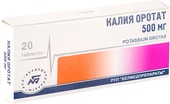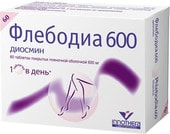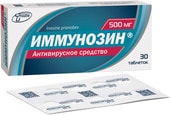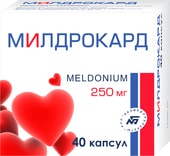Aquadetrim drops for oral administration 15000m/ml 10ml №1
$19.00
SKU: 28867
Category: Specialty Supplements
Aquadetrim Drops for Oral Administration 15,000 IU/ml – 10ml (Pack of 1)
Aquadetrim drops are a clear, transparent or slightly opalescent liquid with an anise scent. This oral solution contains cholecalciferol (vitamin D3) and is formulated to help prevent and treat vitamin D deficiency, rickets, and osteomalacia.
Key Features:
- High Strength: Each ml contains 15,000 IU of vitamin D3, providing a potent and effective dosage.
- Easy Administration: Drops are easily administered orally, making it convenient for all ages.
- Aqueous Solution: Aquadetrim is an aqueous solution, which is better absorbed than oil-based vitamin D supplements.
- Fast Action: The aqueous formula promotes rapid and complete absorption, delivering quick results.
- Comprehensive Care: Aquadetrim supports healthy bone development, calcium absorption, and overall well-being.
Indications:
- Prevention of Rickets and Osteomalacia: In children and adults.
- Prevention of Rickets in Premature Infants: Due to their increased risk of vitamin D deficiency.
- Prevention of Vitamin D Deficiency: In individuals at risk, including those with malabsorption.
- Treatment of Rickets and Osteomalacia: In children and adults.
Dosage and Administration:
- Prevention: 500 IU (1 drop) per day for children and adults.
- Treatment: The dosage is determined by your doctor based on the severity of the deficiency.
- Administration: The drops can be taken directly or added to a spoonful of liquid.
- Accurate Dosing: Hold the vial at a 45° angle to ensure accurate drop counting.
Pregnancy and Lactation:
- Consult Your Doctor: Use Aquadetrim during pregnancy or lactation only as recommended by your doctor.
- Avoid Overdosing: High doses of vitamin D3 may be teratogenic.
Cautions:
- Individualized Dosage: The daily requirement and method of vitamin D administration in children should be determined and monitored by your doctor.
- Hypervitaminosis D: Very high doses of vitamin D3 or long-term use can lead to hypervitaminosis D, which requires medical attention.
- Ingredients: Contains benzyl alcohol and sucrose. Not suitable for individuals with sensitivities or hereditary fructose intolerance.
Interactions:
- Anticonvulsants: Drugs like phenytoin and phenobarbital may decrease vitamin D3 absorption.
- Thiazide Diuretics: Increases the risk of hypercalcemia when taken with Aquadetrim.
- Cardiac Glycosides: May increase their toxicity, leading to potential heart rhythm disturbances.
- Antacids: Antacids containing magnesium and aluminum can potentially lead to toxicity.
- Vitamin D Analogs: Increased risk of toxic effects when taken together.
- Calcium or Phosphate Supplements: May increase the risk of hyperphosphatemia.
- Ketoconazole: Can inhibit both the biosynthesis and catabolism of vitamin D3.
Contraindications:
- Hypersensitivity: Do not use if allergic to any component of Aquadetrim.
- Hypervitaminosis D: Avoid using if you have high levels of vitamin D in your system.
- Hypercalcemia: Do not use if you have elevated calcium levels in your blood and urine.
- Calcium Kidney Stones: Not recommended for individuals with this condition.
- Sarcoidosis: Avoid using Aquadetrim if you have sarcoidosis.
- Renal Failure: Not recommended for individuals with renal insufficiency.
- Hereditary Fructose Intolerance: Not suitable for individuals with this condition.
- Glucose-Galactose Malabsorption Syndrome: Avoid using if you have this syndrome.
- Sucrase-Isomaltase Deficiency: Not recommended for individuals with this deficiency.
Storage:
- Room Temperature: Store at a temperature below 25°C.
- Light Protection: Protect from light.
- Original Packaging: Keep in its original packaging.
- No Refrigeration or Freezing: Do not refrigerate or freeze.
- Childproof: Keep out of reach of children.
Overdose:
- Symptoms: Overdose can lead to hypercalcemia, hypercalciuria, kidney calcification, bone damage, and cardiovascular disorders.
- Treatment: Stop taking Aquadetrim immediately and contact your doctor. Medical intervention may be necessary to manage hypercalcemia.
Side Effects:
- Rare: Side effects are rare when taking recommended doses.
- Hypervitaminosis D: In case of hypersensitivity or very high doses, hypervitaminosis D can occur.
- Symptoms of Hypervitaminosis D: Heart rhythm disturbances, hypertension, headache, lethargy, conjunctivitis, photophobia, loss of appetite, nausea, vomiting, constipation, uremia, polyuria, muscle and joint pain, muscle weakness, increased blood cholesterol levels, weight loss, severe thirst, profuse sweating, pancreatitis, increased activity of aminotransferases, decreased libido, depression, mental disorders, itching, rhinorrhea, hyperthermia, dry mouth, increased levels of calcium in the blood and/or urine, kidney stones, and tissue calcification.
Note: This information is for educational purposes only and does not constitute medical advice. Always consult with your doctor before starting any new medication.
| INN | CHOLECALCIFEROL |
|---|---|
| The code | 28 867 |
| Barcode | 5 907 529 431 054 |
| Dosage | 15000IU/ml 10ml |
| Active substance | cholecalciferol |
| Manufacturer | Pharmaceutical Works Polpharma SA Medana Branch in Sieradz, Poland |
| Importer | IOOO Interfarmaks 223028 Minsk region, Minsk district, Zhdanovichsky s / s, ag. Zhdanovichi, st. Star, 19a-5, room. 5-2 |
Related products
Sale!
Specialty Supplements
Sale!
Specialty Supplements
 Free worldwide shipping on orders $99+
Free worldwide shipping on orders $99+  US: temporary delays — postal services aligning new import rules,
US: temporary delays — postal services aligning new import rules,  EU: 1–2 weeks,
EU: 1–2 weeks,  Worldwide: 1–4 weeks
Worldwide: 1–4 weeks 











